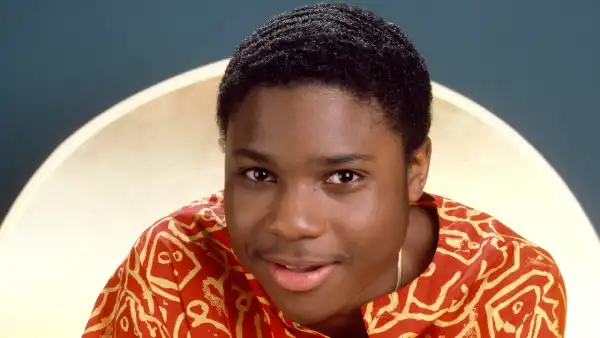
Save this storySave this storySave this storySave this story
A few hours after Malcolm-Jamal Warner’s death was announced, I received a call from one of my closest friends. I knew before I answered that he wanted to discuss Warner. We shared our feelings in quiet, disbelieving voices. This friend and I had grown up in different environments, but we both felt the ghost of Theo Huxtable from The Cosby Show, by far Warner’s most famous role, hovering over our childhood memories. Theo was a fun, stylish, friendly, confident young man with an often charming slyness and a little mischief. He was constantly getting into trouble. He had a prankster friend named Walter, whom everyone called Cockroach. The two had come up with a simple rap to help them navigate Shakespeare, which Theo initially thought “wasn’t even written in English.” The great ghost of Caesar! When he had a fight with his girlfriend Justine, he turned to his father for advice and ended up learning to sing the blues. His room was a mess.
Theo’s parents were impressive black professionals living in a sprawling brownstone in Brooklyn, and he sometimes felt — and boldly expressed — the pressures of living up to those expectations. In the very first episode of The Cosby Show, Theo gets into serious trouble for his mediocre grades. Theo resists, delivering a long, impassioned speech about how, despite the financial success of his parents — Heathcliff (Bill Cosby), a doctor, Claire (Phylicia Rashad), a lawyer — he just wants to be like “regular people.” You know, drive a truck, open a gas station, get your hands dirty, and live a more tangible, down-to-earth life. There’s life beyond those brownstones, too.
This speech is like an expression of rare youthful wisdom, a bold conclusion for an elitist father. All the child wanted, despite his academic success, was love and easy acceptance from his loved ones.
And then his father shatters the warm, cozy bubble. “Theo, that’s the stupidest thing I’ve ever heard,” the doctor growls. “No wonder you’re getting Ds in everything!” His message: “Yes, we love you, but as long as you live here, you’re going to try your best and maintain high standards.”
Theo’s subsequent life, over the course of the eight years of The Cosby Show, plays out like a testament to this idea. He is eventually diagnosed with dyslexia, which explains his persistent academic difficulties. He then enrolls at New York University and later runs a raucous after-school program for underprivileged teenagers, often cajoling them with stern moralizing that is very similar to what his parents gave him.
He became a symbol of meritocracy and the black boy. His life story was what the civil rights movement was supposed to achieve. He was a good kid who ended up using his advantages in life to help others. He persevered. Whenever I felt like I was letting my mother down as a child, I told a friend that the shame was often accompanied by a nagging suspicion that she wished I was a little more like Theo.
Another way to say this is that Theo Huxtable was a beautifully realized character, but also a lofty ideal. What he represented was too much for any real person to handle. Malcolm-Jamal Warner seemed remarkably up to the task. He became famous and very visible at an alarmingly young age, but unlike many other former child stars, he never seemed to harbor any particular anger about his experiences, or resentment at having to carry Theo’s candor with him for the rest of his life.
When he played characters in shows like Suits, The Resident, and Malcolm & Eddie, it was impossible not to think of Theo. But that wasn’t a negative thing: it simply meant that the archetype created by the previous character had now become commonplace across all genres of reality representation—that Theo had done the incredibly difficult cultural work of giving a face to a new, and then suddenly ubiquitous, type of human being.
Warner facilitated this process, always with an ambassadorial optimism. He knew what he was talking about. One of the unspoken messages of The Cosby Show — far more controversial now than it was when it debuted in the 1980s — was that polished self-presentation was part of a black man’s arsenal for surviving in an unpredictable world. If you could turn trouble into laughter, ashes into beauty, and missteps into learning opportunities, all while being a credit to your race, you were a success. Perhaps unwittingly, W
Sourse: newyorker.com